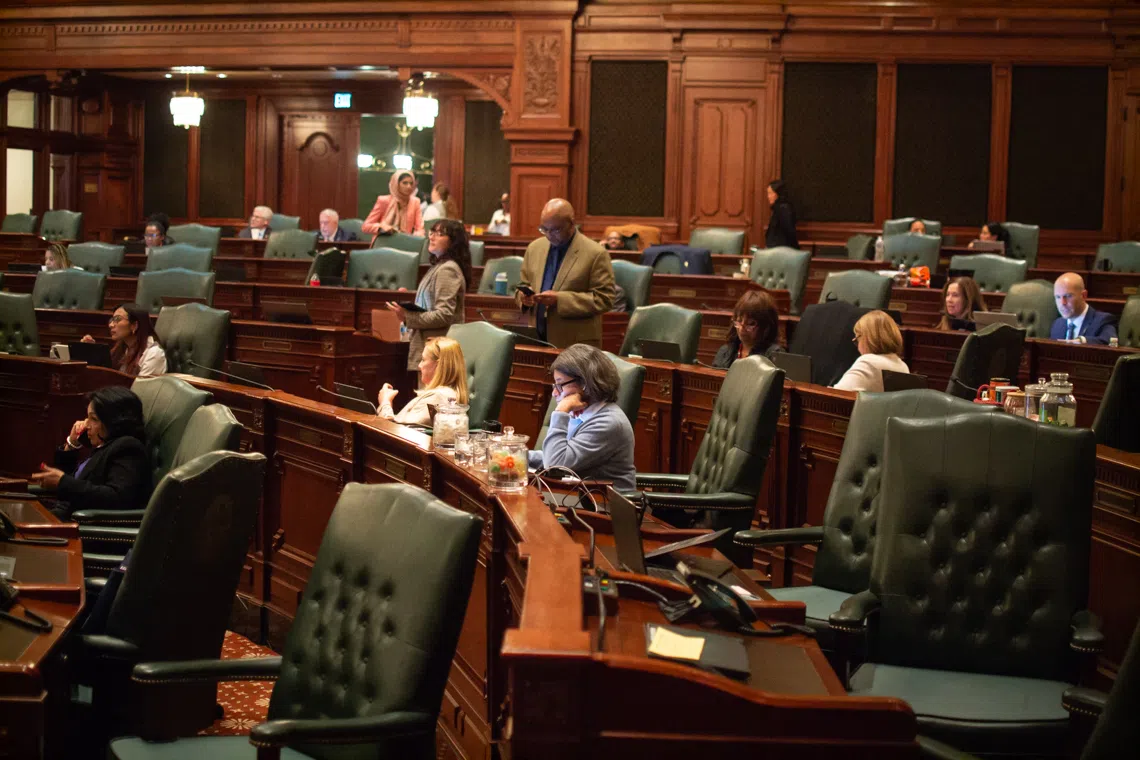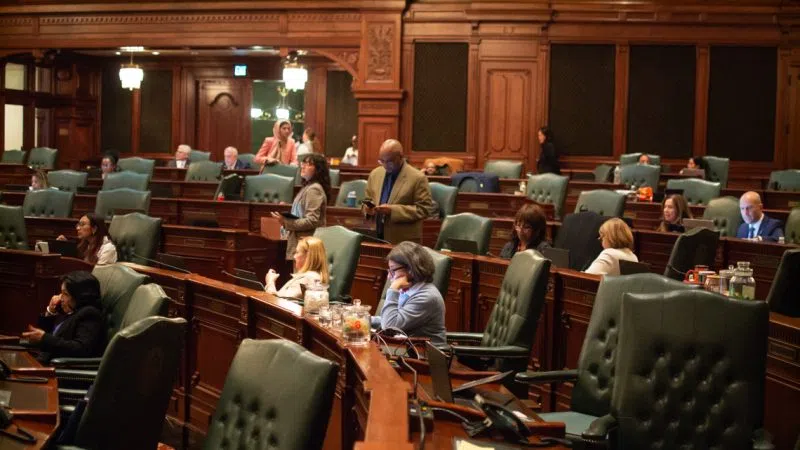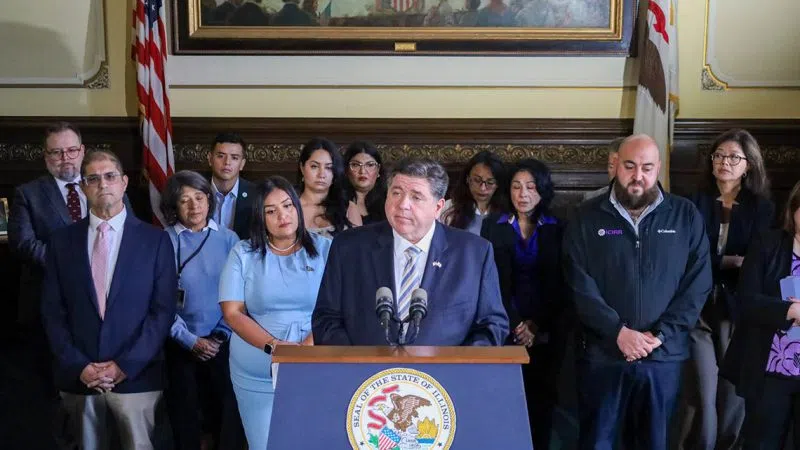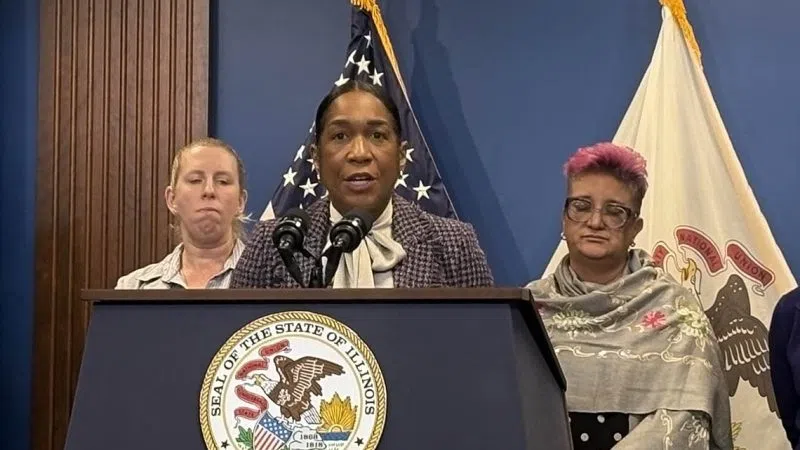
Lawmakers wait on the Illinois House floor to vote on a new transit funding plan and other measures that surfaced in the final hours of the fall veto session. (Capitol News Illinois photo by Jerry Nowicki)
Article Summary
- A new transit funding bill expected to be filed in Springfield Thursday night raises $1.5 billion for public transportation agencies, mostly in the Chicago area.
- The proposal calls for diverting sales tax revenue from motor fuel purchases to public transportation operational expenses and allocating interest from the Road Fund to public transportation.
- It does not include several controversial new statewide taxes or increases that were introduced in previous versions.
- Chicago-area residents would pay more through a sales tax increase and higher tolls.
- Downstate transit agencies are set to receive $129 million – below the $200 million they hoped for.
This summary was written by the reporters and editors who worked on this story.
SPRINGFIELD — A new funding plan for public transportation surfaced Thursday evening without new taxes on entertainment or package deliveries that were part of previous plans.
Instead, the measure would be fueled by revenue sources that currently feed the state’s Road Fund and an increased sales tax targeted to the Chicago area, according to its sponsor’s description in a committee hearing.
A full version of the bill had not yet been released as of 8 p.m., but Rep. Eva-Dina Delgado, the Chicago lawmaker leading the issue for House Democrats, outlined a $1.5 billion annual funding plan that will help Chicago area transit agencies avoid a funding shortfall beginning in the second half of 2026.
“We have come up with a different revenue package here that we feel is a way that we can avoid raising significant taxes on folks but still be able to do a transformational investment in transit,” Delgado told the House Executive Committee.
The bulk of the funding, $860 million, would come through redirecting sales tax revenue charged on motor fuel purchases to public transportation operations. Another estimated $200 million would come from interest growing in the Road Fund — a state fund that is typically used for road construction projects but can also be used for transportation-related purposes under the state constitution.
The plan calls for raising the existing Regional Transportation Authority sales tax by 0.25 percentage points, to 1% in Lake, McHenry, Kane, DuPage and Will counties and 1.25% in Cook County. That tax hike will generate $478 million
Drivers of passenger vehicles on northern Illinois’ toll roads will also have to pay 45 cents more per toll as part of a plan to create a new capital program for tollway projects.
Downstate lawmakers in both parties worried they drew the short straw in the bill, however, as only $129 million would go toward operational expenses at downstate public transit agencies. The agencies and advocates hoped to receive $200 million.
“This is a devastating and extensive change for the district I represent,” Rep. Ryan Spain, R-Peoria, said.
The downstate lawmakers also worried the bill tapping into Road Fund money removed a critical funding source for road construction projects.
Illinois AFL-CIO President Tim Drea, who led a coalition of labor unions in negotiations over the bill, spoke in support of the proposal on Thursday. Unions have typically fiercely opposed any measure that diverts from the Road Fund but support this measure because of its importance to union employees at transit agencies.
The bill appeared on track to pass the General Assembly on Thursday following a day of negotiations between stakeholders, lawmakers and the governor’s office.
Capitol News Illinois is a nonprofit, nonpartisan news service that distributes state government coverage to hundreds of news outlets statewide. It is funded primarily by the Illinois Press Foundation and the Robert R. McCormick Foundation.







